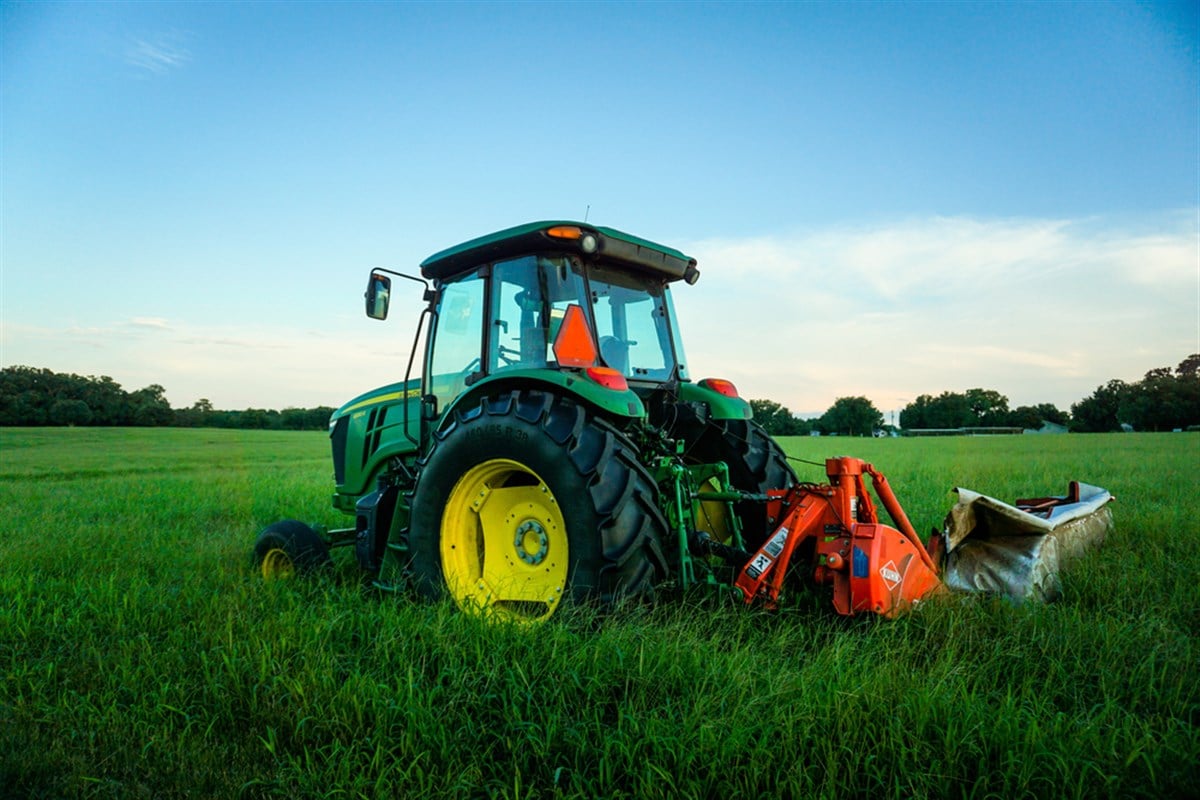
Deere & Company (NYSE: DE) is a titan of the agricultural and construction equipment sector. Deere & Company’s financial reports often serve as a barometer for the health of these crucial market sectors. Deere & Company’s earnings report for the second quarter of 2024 was released, providing investors with insight into the company’s financial health. While showing strong revenue and earnings per share, the report also revealed a cautious outlook on the agricultural sector. The lowered guidance prompted investors to closely analyze the company’s performance and the implications for their portfolios.
Q2’s Earnings Harvest
Deere & Company's Q2 2024 earnings report gave investors a detailed view of the company's recent financial performance. While the company exceeded Deere & Company’s analyst community’s expectations on revenue and earnings per share, it also lowered its full-year profit forecast for the second time. This adjustment reflects the company's cautious outlook on the agricultural sector, which is currently facing challenges.
The company reported revenue of $15.24 billion for the quarter, exceeding analyst estimates of $13.3 billion. Earnings per share came in at $8.53, topping analysts predictions of $7.86. However, Deere's net income fell by 17% compared to the same period last year, demonstrating the company's struggle to maintain profitability in the challenging agricultural industry.
A closer examination of Deere's segment performance reveals the source of this mixed bag of results. The company's Production and Precision Agriculture segment, which encompasses large and mid-size tractors, combines, and other equipment, saw revenue decline by 16% to $6.58 billion. This segment's performance reflects the softening demand from farmers struggling with lower commodity prices and higher input costs.
Deere's Small Agriculture and Turf segment, which includes mid-size and small tractors and other equipment, experienced a more significant decline, with revenue falling by 23% to $3.19 billion. This segment's performance is particularly noteworthy, as it signals a broader downturn in agricultural demand.
While not immune to broader economic trends, the Construction and Forestry segment fared relatively better, with a 7% revenue decline to $3.84 billion. This performance suggests that the construction industry remains relatively stable compared to the agricultural sector.
Deere's Financial Services segment, which provides financing solutions to farmers and construction companies, reported a net income of $162 million, a significant increase compared to the same period last year. This segment benefits from higher interest rates and increased portfolio balances but is also facing pressure from higher credit losses and less favorable financing spreads.
Analyst Sentiment on Deere
Analyst sentiment on Deere remains positive, with a consensus rating of Moderate Buy. The average price target for Deere's stock is $436.93, suggesting a potential upside from current levels. However, analysts are closely monitoring the agricultural sector's challenges and subsequent impact on Deere's business.
Analysts are concerned about the near-term outlook for the agricultural sector, citing the impact of lower commodity prices, higher input costs, and declining farm income. They are also watching for signs of improvement in the global economic environment, which could provide some relief to the agricultural sector.
Analysts remain optimistic about Deere's long-term growth potential despite the near-term headwinds. They highlight the company's investments in technology, such as precision agriculture, and its commitment to sustainability initiatives as key drivers of future growth.
Deere's Long-Term Strategy
Despite the near-term challenges facing the agricultural sector, Deere & Company remains committed to its long-term growth strategy. The company is actively investing in technology and innovation to improve farm efficiency, profitability, and sustainability.
Deere's investments in precision agriculture technology, such as automation, data analytics, and machine learning, are transforming farming practices. These technologies help farmers to optimize crop yields, reduce input costs, and minimize environmental impact.
Deere is also committed to its sustainability initiatives to reduce its carbon footprint and promote sustainable farming practices. The company is developing and introducing equipment that uses alternative fuels and reduces greenhouse gas emissions, aligning with global efforts to mitigate climate change.
In addition to its core agricultural business, Deere is expanding into new markets and product lines. The company is actively exploring opportunities in renewable energy and infrastructure development, seeking to leverage its technological expertise and global reach.
Challenges and Risks Facing Deere
Despite Deere & Company's commitment to innovation and diversification, it faces several challenges and risks that could impact its future performance. These challenges are often intertwined, reflecting the complex dynamics of the agricultural and construction industries.
The agricultural sector is inherently cyclical, subject to fluctuations in commodity prices, weather patterns, and government policies. These factors can significantly impact farm income and demand for Deere's equipment. Lower commodity prices, driven by global supply chain disruptions, geopolitical instability, and increased production, can reduce farmer profitability, decreasing demand for agricultural equipment.
Higher input costs, including fertilizer, fuel, and labor, are another significant challenge facing the agricultural sector. These rising costs squeeze farmer’s profit margins, making investing in new equipment more difficult. Inflationary pressures further exacerbate this issue as the cost of equipment and other inputs rises.
The rapid pace of technological advancement presents opportunities and challenges for Deere. New technologies, such as autonomous vehicles, drones, and data analytics platforms, are emerging and could disrupt the traditional agricultural equipment market. Deere must adapt to these changes, investing in research and development to maintain its technological leadership.
Deere & Company's commitment to innovation, diversification, and sustainability positions the company for long-term success. However, investors should be aware of the company's challenges and risks, particularly in the agricultural sector. Investors should carefully assess Deere's valuation, risk profile, and potential for future growth before making an investment decision. They should also monitor the company's financial performance, response to industry challenges, and progress in advancing its long-term growth strategy.













